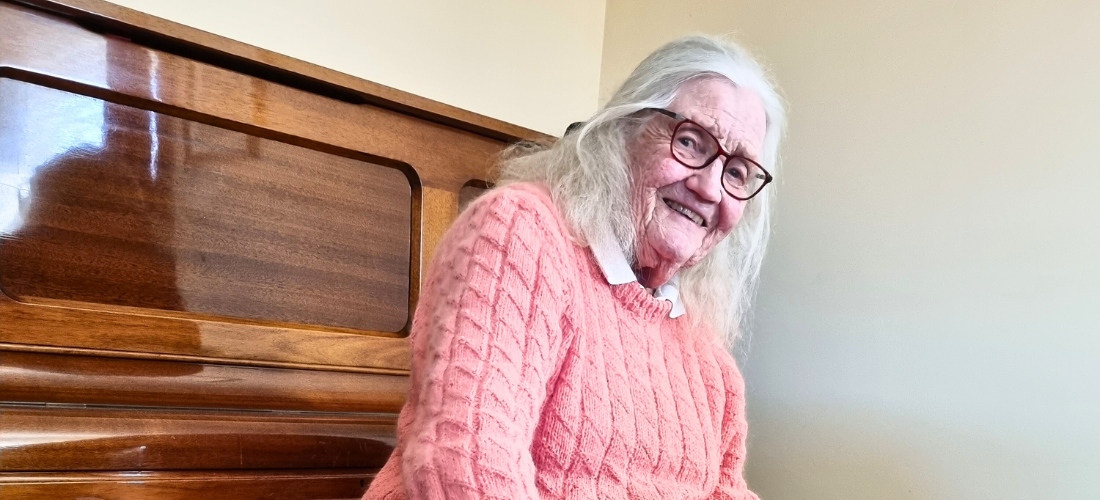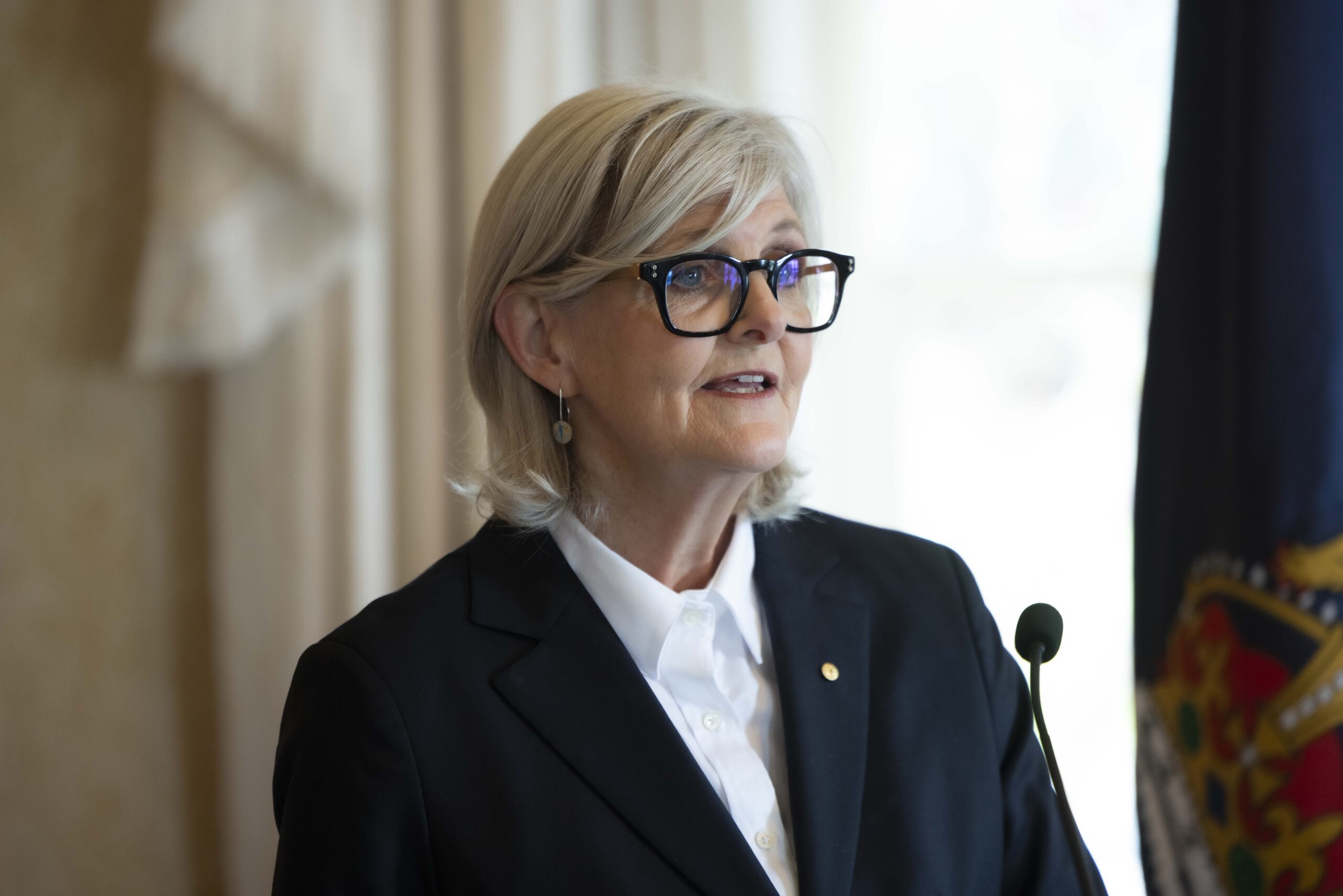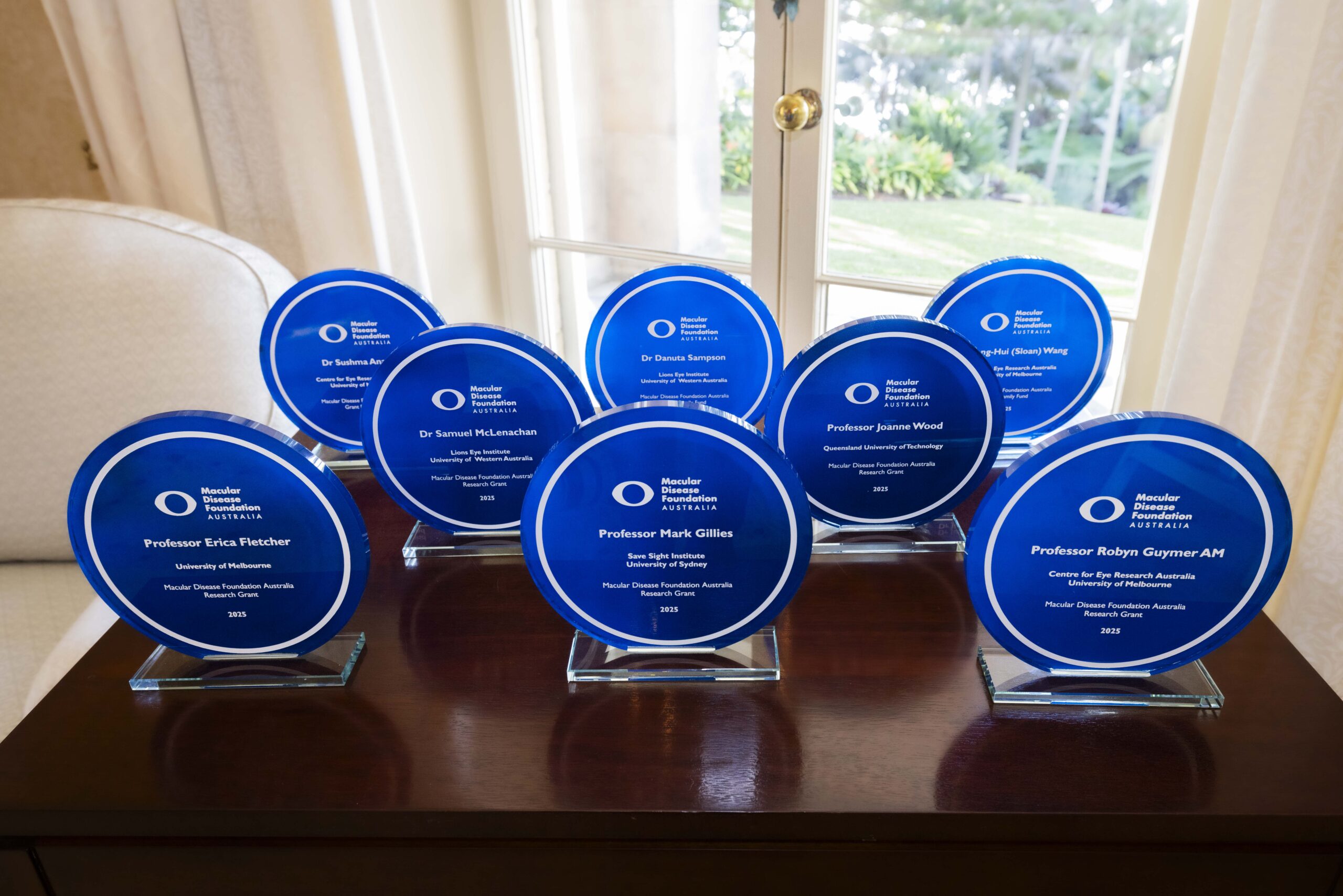Goal of $10m over 10 years
To celebrate its 10 year anniversary the Macular Degeneration Foundation has announced its single largest research commitment with the establishment of the Macular Degeneration Foundation Research Grants Program to raise $10 million over the next 10 years to help find a cure for blindness from the disease.
Launching Macular Degeneration Awareness Week at the 10th anniversary gala fundraising dinner on Friday 20 May, the Foundation’s CEO Julie Heraghty said, “We have taken up the challenge to find the reasons and answers for this disease with an initial research allocation of $1.5 million over the next three years. In addition, an annual $40,000 Blackmores Dr Paul Beaumont Research Fellowship will be awarded in honour of Dr Paul Beaumont, the Foundation’s Founding Director.
“This announcement marks a milestone for research and takes us a step closer to finding a cure. We need to see a future without macular degeneration. Government, the Macular Degeneration Foundation and the community need to support investment in research because, as our population quickly ages, very soon everyone will know someone who is at risk of blindness from this disease.
“A national survey commissioned by the Macular Degeneration Foundation shows that 90 per cent of Australians believe that the Federal Government should make spending on research to find a cure for macular degeneration a high priority,” says Heraghty.
The survey also found 89 per cent agree that donating to research on macular degeneration is a good way to help find a cure for this debilitating eye disease.
Leading business woman, journalist, author and Patron of the Macular Degeneration Foundation, Ita Buttrose said, “In the last 10 years the Foundation has achieved so much in building awareness about the importance of people having their eyes tested and macula checked on a regular basis, and about the positive benefits of nutrition and lifestyle as a preventative step to getting the disease. A massive investment in research could make a huge impact on saving the sight of Australians who are at risk of this disease.”
Founding director and leading Australian retina specialist Dr Paul Beaumont said, “Over the past decade significant advances have been made in better diagnosis, treatment and rehabilitation.
“I never thought it would be possible in my lifetime to say to a patient that I could save their vision. It has been only through research that we have been able to do this and now further research may help us realise the dream – to find a cure.”
Macular degeneration affects one in seven Australians over the age of 50. The symptoms may include one or more of the following:
- Difficulty with reading or any other activity with fine vision
- Distortion where straight lines appear wavy or bent
- Distinguishing faces becomes a problem
- Dark patches or empty spaces appear in the centre of your vision.
These symptoms can all indicate that there is something wrong. The major risk factors for macular degeneration are age, smoking and a family history of the disease.
Posted: 23 May 2011
















